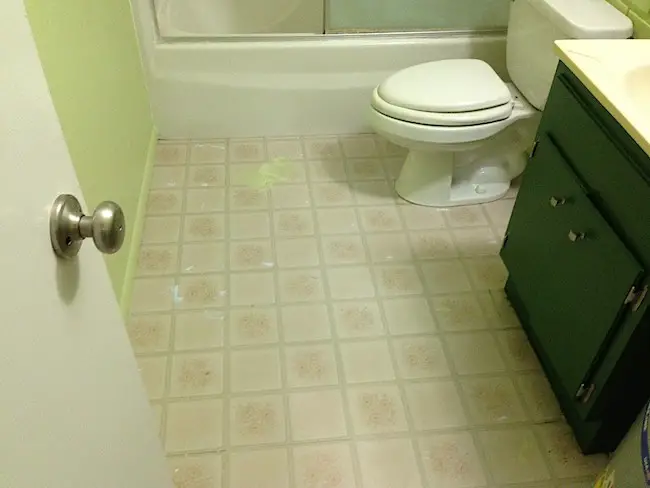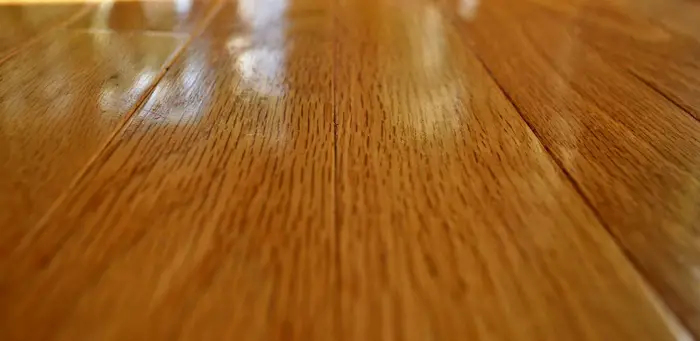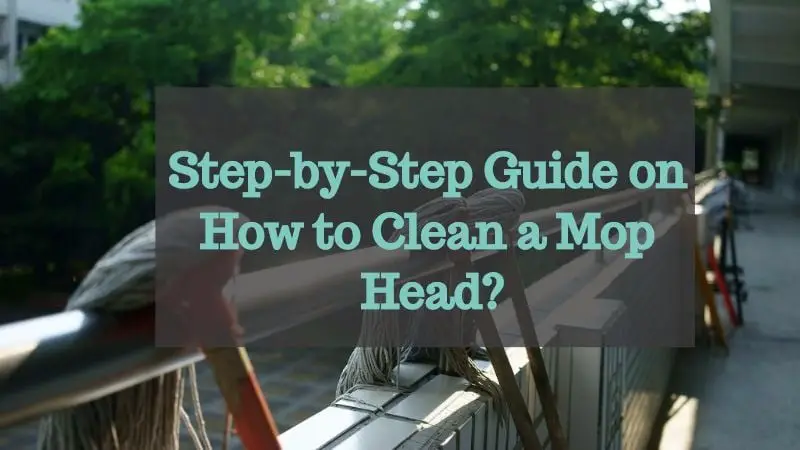Who doesn’t like a clean and dry bathroom? Due to the busy lifestyle, I often neglect cleaning the bathroom tiles until the hard water stains start staring at me. Let’s admit that house cleaning is REAL WORK and bathroom is one place that needs a lot of maintenance.
How to clean bathroom tiles hard water stains? I prefer using safe and natural items like vinegar and lemon readily available in the kitchen to get rid of the white and ugly rings. The acid in these cleaners helps in breaking down the mineral deposits to give clean and sanitized bathroom tiles.
Let’s not forget that hard water deposits are alkali in nature, which means it has a pH level greater than 7. So, if you use any form of acid that has a lower pH than 7, it will help soften the water deposits and ultimately dissolve them.
Read on to discover the different ways in which you can clean the hard water stains on bathroom tiles naturally. Follow the steps to make your own cleaning solution. Before that, let’s take a quick look at how hard water stains are caused.
How Hard Water Stains Are Formed?
Hard water contains a high concentration of mineral deposits, especially calcium and magnesium. As the traces of mineral in the water rise, the degree of hardness also increases. Hard water with dissolved minerals is found in places where the water comes from municipal water pipes and wells
When the hard water containing minerals evaporate, water goes into the air as vapor leaving behind an ugly coating or white mark on the surface. If your bathroom has dark colored tiles, they are easily visible. If neglected for long, they can make your bathroom tiles look untidy.
Unless you clean the deposits on a regular basis, you will leave dirt particles, soap and shampoo scum over the mineral crystals every time you take a shower. The dirt locks over the previous layer of mineral deposits to create layers of cake comprising of dirt and hard water deposits.
What Are The Best Homemade Hard Water Cleansers
I strongly suggest you not to use abrasive chemicals and cleaning agents on bathroom tiles as this can damage the color and shine. Homemade solutions are not only safe but they are also super effective in removing stains from tiles, walls, and faucets.
Using Lemon juice:
Lemon juice works as a natural acid to quickly remove stubborn hard water stains from the bathroom tiles. Besides making your bathroom squeaky clean, it also leaves a refreshing lemony smell that can cover any foul smell.
To make a lemon cleansing solution, you simply need to take 4-5 lemons (more if you are treating a larger surface). Squeeze out the juice of all lemons and apply it over the hard water stains on the bathroom tiles. You must make sure that the lemon juice covers the stains completely. Leave it for some time and then scrub off.
Using Baking Soda:
As one of the frequently used natural cleaning agents, baking soda is one of the most readily available ingredients in the household. The mild abrasive characteristic of baking soda works on tough stains and stubborn spots with ease to give you a clean and germ-free bathroom.
You can make a natural and cost-effective cleaning solution by mixing baking soda with water to make a smooth paste. Smear this paste over the hard water stains on the bathroom tiles and let it sit for some time. You can then scrub off using a sponge or bathroom brush.
Using White Vinegar:
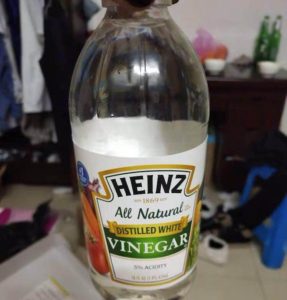
White vinegar is yet another natural and effective cleaning agent that has earned the reputation of an all-rounder cleaner. The gentle acidic nature of vinegar works perfectly to help you remove the hard water stains from bathroom tiles. It also prevents the growth of disease-causing germs such as mildew and mold.
White vinegar is helpful in cutting through the mineral deposits and quickly removes the hard water stains from bathroom tiles. Vinegar can be mixed with several other cleaning agents to create a more powerful solution to remove the stubborn stains. Here are some interesting ways to use vinegar:
Vinegar Spray
- 2 cups vinegar
- 1 cup warm water
- 1 tsp. dishwashing liquid
To make a quick vinegar cleansing solution, you need to mix two cups of vinegar with a cup of warm water and one teaspoon of dishwashing liquid. Transfer this content into a spray bottle and spray some over the stains. Let it sit for 15-30 minutes and then scrub with a brush or sponge. Rinse the area and repeat if needed.
Vinegar Scrubbing Paste
The mild vinegar spray might not work for the stubborn stains that have been neglected for a long time. I would recommend adding borax to vinegar solution to prepare a heavy duty scrubbing paste. When both vinegar and borax come together, they form a cleanser that is powerful enough to cut all types of stains. To make your own vinegar-borax paste, you will need:
- 1 cup white vinegar
- 3/4 cup of borax powder
- 1 tsp dishwashing liquid (optional)
Mix the above items and create a paste that is thick enough to not run down when applied on any surface. Apply this paste on the bathroom tiles that have ugly hard water stains, ensuring that you completely cover the stains. Scrub using a wet sponge and rinse.
A pro tip: You may use lemon juice in the place of vinegar if the later is not available.
Using Pumice Stone
For the extremely stubborn stains, I often turn to the pumice stone but you must ensure that the surface is wet so that you don’t scratch the tiles. If you have colored bathroom tiles, I would not recommend using a pumice stone.
To use a pumice stone, just wet the stone with water and gently scrub the area that has hard water stains on them. Apply light pressure and keep scrubbing until all the stains are gone.
Using Salt
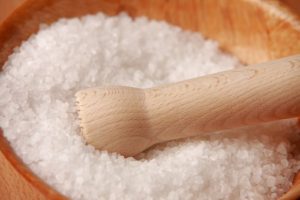
This may appear like a surprise entrant for you, but salt can actually help you get rid of hard water stains from the bathroom tiles. It can effectively cut through the tough stains and hard water spots. As salt is a disinfectant, it may help in killing the germs to keep your bathroom hygienic.
Before using salt, you need to first wet the bathroom tiles and then sprinkle some salt on the stains to cover the area. Let the salt sit on the stains for at least 30 minutes and then scrub off the whole thing using a gentle scrubber.
Using Borax
Although borax is a naturally occurring mineral, it can help you remove the hard water stains that comprise of mineral traces. The high alkali nature of borax helps in dissolving the stubborn hard water spots and stains. It also kills the bacteria and microbes to give you clean and odor-free bathroom.
To prepare the cleaning mixture, you need to mix one cup of borax with a gallon of water. You can transfer this mixture into a spray bottle and spray on the hard water stains on bathroom tiles. Let it sit for some time and then scrub using sponge or brush.
5 Ways To Prevent Future Buildup Of Hard Water Stains
You will be surprised to know the kind of difference you can create by changing some habits and following a schedule to prevent the buildup of hard water stains in the future. Here are some smart tips that can help you:
#1. Clean bathroom tiles weekly
You may not be able to clean the tiles daily due to your work and family commitments, but make it a habit to clean at least once every week. A bathroom is an important place of the house and you need to keep it clean and germ-free to ensure the good health of your family. Hard water stains are easier to clean when they are fresh.
#2. Using warm water to clean
Try to clean the bathroom tiles using warm water occasionally to get rid of the hard water stains. If there are dried scum or stains on the tiles, warm water can help by dissolving them easily.
#3. Mop/ rinse daily after shower
Mop the bathroom floor and wipe the wall tiles with a dry towel after you take a shower. Make it a habit and ensure that your family members also mop/ rinse the bathroom after each shower. Keeping the bathroom dry prevents the growth of mildew, mold, and stains.
#4. Avoid harmful chemicals
I know it may be tempting to use chemicals to get rid of the stubborn stains quickly and easily, but beware – this can damage the sealants of the tiles. You would definitely not want to spoil the flooring while trying to clean it.
#5. Keep your bathroom well-ventilated
You must ensure the bathroom is airy enough to not allow any moisture to thrive inside. Proper ventilation helps the water to evaporate quickly instead of sitting on the tiles and causing hard water rings. You may use an exhaust fan to keep the bathroom dry and prevent any stain or mold formation.
#6. Invest a water softener for your home
Well, it’s no secret that hard water stains are caused because the water in your area has a higher pH level. You can fix this by buying a water softener to improve the quality of water. This investment will save you from unwanted cleaning hassles for years.
#7. Buy a high-quality squeegee
Nothing cleans better than a squeegee like this with a good quality rubber blade. Use it to remove water from floors and walls to prevent water standing for long on any surface. If you drain water quickly, there will not be any hard water deposits on the tiles.
Related Question
Can I Steam Clean Bathroom Tiles?
Yes, steam cleaning is a safe and effective method to get rid of the hard water stains on bathroom tiles without the use of chemicals. It is a favored technique by parents to sanitize kitchen and bathroom tiles without using hazardous chemicals.
The steam cleaners (click to see my review) combine the powerful effect of pressurized streams of hot water that helps in dissolving tough and stubborn stains. This is a less costly method than replacing the tile flooring. The hot vapor also helps in killing microbes like streptococcus, Hepatitis A, Staphylococcus, and E. Coli.
Will the tiles look like new after cleaning?
If you have neglected the hard water stains for too long, it will require some patience and perseverance. It may not go away all at once, but repeated cleaning will eventually make the stains lighter and give your tiles a new like shine.
